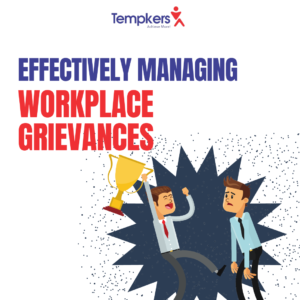
Making Critical Manpower Decisions
One critical decision every HR professional is faced with is ensuring that the manpower needs of a company is met. This means that we have

Most times when humans receive Negative feedback that conflicts with their self-image, they tend to suffer the severe disorientation and psychological anarchy therefore they put up ego defenses mechanism to help them overcome such experiences, Here are tips that will help you handle negative feedback
No matter how invested you are in what you do, it pays to remember that you are not your job. It’s easy to take negative feedback related to your performance as a personal attack, but it’s healthier to acknowledge your emotions and put them aside trying not to react defensively is not always a wise decision.
Emotional intelligence (EQ) refers to the ability to recognize and effectively manage your colleagues’ workplace behaviors, and is an important factor in workplace success.
Though it’s difficult, it is important to push yourself to be positive about the criticism and maintain respect for all parties.
Listen to what the person is saying and really try to understand where it is that they’re coming from.
Ensure that you take suggestions about how you could rectify the situation. Be ready to hear and accept your weaknesses.
It’s never a bad idea to circle back with him or her after a few days or weeks and say something like, “Based on my evaluation, here are the three major points
I understand I need to improve on, and here is what I understand that I do well and should continue to do.
There is one point you mentioned that concerns me a bit, and here’s why.
” The person giving you the feedback will appreciate that you’ve taken the time to analyze it and that you are crystal clear on the steps you should take to improve in the future.
Whenever you get caught up by negative feedback caught, pointing to a flaw that makes you self-conscious, or was of personal nature chances are you’re going to feel bad about it. That’s totally normal.
You should allow yourself a period of time to work through the feelings it stirs up, you should also commit to letting them go.
If the feedback is not wrong, the best thing you can do moving forward is come up with a plan to fix the problem. Take initiative and show you care about improving.
“If you want to continue to grow in your career, either within your current company or with another, you should respond back to your supervisor within a couple of day
We should try to think of upsetting or surprising information as helpful and a productive data that way we would be able to keep calm why we work with the information and also strive to see the bigger picture,
it helps us put feedback in its proper perspective. Then and only then should we decide how to respond.
Once again, this very much depends on the situation, the feedback and who gave it. Some of the positives of doing this are: positively reinforcing that person to continue to give feedback, creating a feedback culture, showing you value them and their observations, and potentially having them think more highly of you as you take your impact seriously.
Remember, just as you might have struggled with receiving negative feedback, others might too. Take that into consideration when you are giving feedback to others. Keep it focused on things they can change, such as behaviour, skills and capabilities. Don’t get personal, don’t give feedback at an identity level. Frame it as developmental and express your intention to help them improve their effectiveness.

One critical decision every HR professional is faced with is ensuring that the manpower needs of a company is met. This means that we have

What is Hazard pay? This is a payment that is made in addition to a worker’s regular salary as a bonus for accepting a job

Have you ever driven your car on 2,3 or 4 flat tires for 10 kilometres ? How did it feel? What was the impact of

Your ability to effectively manage Grievance, can make you a star In a workplace grievances must happen, your ability to effectively manage them makes you

Every CEO desires to have a dream team. People who would come together and give their best to running and growing the business. Most times

In this HR series, we will be discussing FORECASTING How many eyes do you have? Many years ago as children, we were playing hide and
WhatsApp us